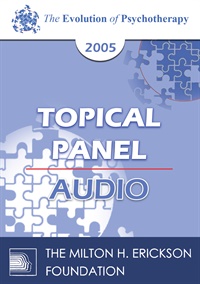EP05 Topical Panel 05 - Sexuality - Albert Ellis, PhD; Otto Kernberg, MD; Michele Weiner-Davis, MSW; Jeffrey Zeig, PhD
- Average Rating:
- Not yet rated
- Topic Areas:
- Topical Panels | Sex and Sexuality | Psychotherapy | Gender
- Categories:
- Evolution of Psychotherapy | Evolution of Psychotherapy 2005 | Pioneers in Couples and Family Therapy
- Faculty:
- Albert Ellis, PhD | Otto Kernberg, MD | Michele Weiner-Davis, LCSW | Jeffrey Zeig, PhD
- Duration:
- 57 Minutes
- Format:
- Audio Only
- Original Program Date:
- Dec 09, 2005
- License:
- Never Expires.
Description
Description: This panel explores the complex relationship between sex, love, and emotional wellbeing. Presenters examine myths about sexuality, the role of anxiety and inhibition, and the impact of unmet needs in long-term relationships. With perspectives ranging from psychodynamic to solution-focused, the discussion highlights the importance of early intervention, cultural awareness, and therapist comfort when addressing sexual concerns in therapy.
Moderated by Camillo Loriedo, MD
Educational Objectives:
- To compare and contrast clinical and philosophical perspectives of experts.
*Sessions may be edited for content and to preserve confidentiality*
Credits
Handouts
| Timestamped Transcript (731.8 KB) | 15 Pages | Available after Purchase |
| Ericksonian Learning Snapshot (248.8 KB) | 2 Pages | Available after Purchase |
Faculty
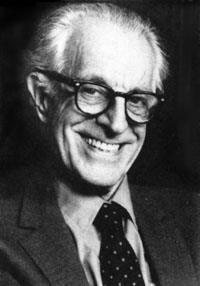
Albert Ellis, PhD Related Seminars and Products
Albert Ellis, PhD, was an American psychologist who in 1955 developed Rational Emotive Behavior Therapy (REBT). He held M.A. and Ph.D. degrees in clinical psychology from Columbia University and American Board of Professional Psychology (ABPP). He also founded and was the President of the New York City-based Albert Ellis Institute for decades.
He is generally considered to be one of the originators of the cognitive revolutionary paradigm shift in psychotherapy and one of the founders of cognitive-behavioral therapies.[2]
Based on a 1982 professional survey of US and Canadian psychologists, he was considered as the second most influential psychotherapist in history (Carl Rogers ranked first in the survey; Sigmund Freud was ranked third).[3][4] Psychology Today noted, "No individual—not even Freud himself—has had a greater impact on modern psychotherapy."[5]
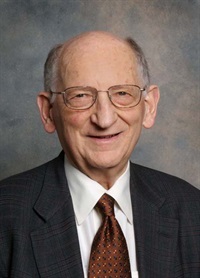
Otto Kernberg, MD Related Seminars and Products
Otto Kernberg, MD, is a psychoanalyst and professor of psychiatry at Weill Cornell Medical College. He is most widely known for his psychoanalytic theories on borderline personality organization and narcissistic pathology. Director of the Personality Disorders Institute at the New York Presbyterian Hospital, Westchester Division, and Professor of Psychiatry at the Weill Medical College of Cornell University. Dr. Kernberg is a Past-President of the International Psychoanalytic Association. He is also Training and Supervising Analyst of the Columbia University Center for Psychoanalytic Training and Research. Dr. Kernberg is the author of twelve books and co-author of twelve others. His most recent books are Psychotherapy for Borderline Personality: Focusing on Object Relations and Handbook of Dynamic Psychotherapy for Higher Level Personality Pathology.
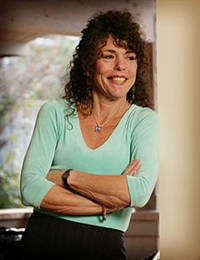
Michele Weiner-Davis, LCSW Related Seminars and Products
Michele Weiner-Davis, LCSW is the Founder of The Divorce Busting Center in Boulder, Colorado. She is a popular TEDx speaker and the author of eight books including, Healing From Infidelity, and the bestselling Divorce Busting and The Sex-Starved Marriage. She is the recipient of several prestigious awards including the Outstanding Contribution to Marriage and Family Therapy Award from AAMFT.
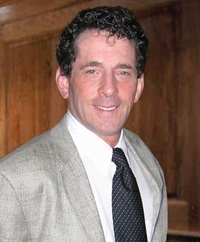
Jeffrey Zeig, PhD Related Seminars and Products
Jeffrey K. Zeig, PhD, is the Founder and Director of the Milton H. Erickson Foundation and is president of Zeig, Tucker & Theisen, Inc., publishers in the behavioral sciences. He has edited, co-edited, authored or coauthored more than 20 books on psychotherapy that appear in twelve foreign languages. Dr. Zeig is a psychologist and marriage and family therapist in private practice in Phoenix, Arizona.


